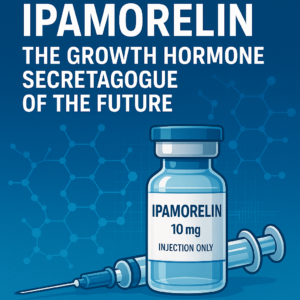This comprehensive guide examines how different drug tests interact with kratom’s unique alkaloids, detection windows, and factors that influence testing outcomes. We’ll explore the science behind kratom testing and provide evidence-based information to help you navigate this complex topic.
What Is Kratom and How Does It Work?
Kratom leaves and powder contain alkaloids that can be detected in specialized drug tests
Kratom (Mitragyna speciosa) is a tropical tree native to Southeast Asia whose leaves contain compounds that can have psychotropic effects. Traditionally used in Thailand, Malaysia, and other regions for centuries, kratom has gained popularity in Western countries for its potential pain-relieving, mood-enhancing, and energy-boosting properties.
The primary active compounds in kratom are alkaloids called mitragynine and 7-hydroxymitragynine. These substances interact with opioid receptors in the brain, producing effects that vary depending on the dosage:
- At lower doses (1-5 grams), kratom typically produces stimulant effects, including increased energy and alertness
- At higher doses (5-15 grams), kratom tends to produce sedative and pain-relieving effects similar to opioids
Despite these opioid-like effects, kratom’s chemical structure differs significantly from traditional opioids, which has important implications for drug testing.
Does Kratom Show Up on Standard Drug Tests?

Most standard drug tests don’t screen for kratom or its metabolites. Here’s how kratom interacts with common drug testing panels:
| Test Type | Substances Detected | Detects Kratom? | Notes |
| 5-Panel Test | Marijuana, cocaine, amphetamines, opiates, PCP | No | Most common employment screening |
| 10-Panel Test | 5-panel substances plus benzodiazepines, barbiturates, methadone, propoxyphene, methaqualone | No | More comprehensive but still doesn’t include kratom |
| 12-Panel Test | 10-panel substances plus MDMA, oxycodone | No | Extended panel still doesn’t target kratom alkaloids |
| DOT Drug Test | Marijuana, cocaine, amphetamines, opiates, PCP | No | Federally mandated testing doesn’t include kratom |
Standard drug tests don’t detect kratom because they’re designed to identify specific chemical structures found in common drugs of abuse. Kratom’s alkaloids have different molecular structures than the compounds these tests target.
Will Kratom Show Up as an Opioid on Drug Tests?
A common concern is whether kratom might trigger a false positive for opioids since it affects similar receptors in the brain. Research indicates that kratom does not show up as an opioid on standard drug tests. The chemical structure of mitragynine and 7-hydroxymitragynine differs significantly from both natural opiates (like morphine) and synthetic opioids (like fentanyl), so cross-reactivity is unlikely.
However, it’s important to note that some kratom products may be adulterated with actual opioids or other substances that could trigger positive results. This highlights the importance of obtaining kratom from reputable sources if you choose to use it.
Specialized Tests That Can Detect Kratom

While standard drug tests don’t detect kratom, specialized tests can identify its alkaloids. These tests are typically more expensive and are not routinely used unless there’s a specific reason to test for kratom.
Types of Specialized Kratom Tests
- Liquid Chromatography-Mass Spectrometry (LC-MS): This advanced testing method can specifically identify mitragynine and 7-hydroxymitragynine in biological samples
- Gas Chromatography-Mass Spectrometry (GC-MS): Another precise method that can detect kratom alkaloids
- Kratom-specific immunoassays: Some laboratories have developed tests that specifically screen for kratom compounds
These specialized tests are typically used in specific contexts:
- Substance abuse treatment programs monitoring abstinence
- Pain management clinics checking for non-prescribed substances
- Forensic investigations where kratom use is relevant
- Research studies examining kratom use patterns
Get the Complete Kratom Testing Guide
Download our free comprehensive guide to understanding kratom detection in all test types, with timelines and strategies for managing testing concerns.
How Long Does Kratom Stay in Your System?

The detection window for kratom varies depending on several factors, including the type of test used, dosage, frequency of use, and individual metabolism. The primary active alkaloid in kratom, mitragynine, has a half-life of approximately 24 hours, meaning it takes about a day for the body to eliminate half of the consumed amount.
Detection Windows by Test Type
| Test Type | Detection Window | Factors Affecting Detection |
| Urine Test | Up to 7-9 days | Frequency of use, dosage, hydration level |
| Blood Test | Up to 2-3 days | Metabolism, liver function, dosage |
| Saliva Test | Up to 1-2 days | Oral pH, frequency of use, oral hygiene |
| Hair Follicle Test | Up to 90 days | Hair growth rate, dosage, frequency of use |
It’s important to note that these detection windows are estimates based on limited research. Individual results may vary significantly based on personal factors and the sensitivity of the testing method used.
Factors That Influence Kratom Detection

Several factors can influence how long kratom remains detectable in your system:
Dosage and Frequency
Higher doses and more frequent use lead to greater accumulation of kratom alkaloids in the body, potentially extending detection windows. Regular users may have detectable levels for significantly longer periods than occasional users.
Metabolism
Individual metabolic rates vary based on genetics, age, and overall health. People with faster metabolisms typically process and eliminate substances more quickly, potentially shortening detection windows.
Body Composition
Kratom alkaloids are fat-soluble, meaning they can be stored in fat cells. Individuals with higher body fat percentages may retain kratom compounds longer than those with less body fat.
Hydration and Diet
Proper hydration can help flush kratom metabolites from the system more efficiently. Similarly, a diet high in fiber may speed elimination through the digestive system.
Kratom Strain and Potency
Different kratom strains contain varying levels of mitragynine and other alkaloids. More potent strains or extracts with higher alkaloid concentrations may remain detectable for longer periods.
Important: Individual factors can significantly impact detection times. The estimates provided are based on available research but may not apply to everyone. If you’re concerned about drug testing, consider these variables when assessing your personal situation.
Workplace Drug Testing and Kratom

Most workplace drug testing programs use standard panels that don’t screen for kratom. However, policies vary by employer and industry.
Industries More Likely to Test for Kratom
Some industries and organizations may be more likely to include kratom in their testing protocols:
- Healthcare: Particularly for positions with access to medications
- Military and law enforcement: Often have more comprehensive testing requirements
- Transportation: Especially in states where kratom is banned
- Addiction treatment facilities: May specifically test for kratom
Legal Implications of Testing Positive
The consequences of testing positive for kratom depend largely on:
- Your employer’s specific drug policies
- The legal status of kratom in your state or locality
- Whether you’ve disclosed kratom use to your employer
In states where kratom is legal, some employers may still have policies against its use. In states where kratom is banned, testing positive could potentially have both employment and legal consequences.
Know Your Rights: Familiarize yourself with your employer’s drug testing policy and the legal status of kratom in your area. In some cases, disclosing legal kratom use before testing may be advisable, but this decision should be made carefully based on your specific circumstances.
Kratom’s Legal Status and Testing Implications

Kratom’s legal status varies significantly across the United States, which directly impacts testing practices and potential consequences.
Federal Status
At the federal level, kratom is not scheduled under the Controlled Substances Act. However, the FDA has not approved kratom for any medical use and has issued warnings about its potential risks.
State and Local Regulations
Kratom regulations vary by state:
- States with bans: Alabama, Arkansas, Indiana, Rhode Island, Vermont, and Wisconsin have banned kratom
- States with regulations: Several states have passed Kratom Consumer Protection Acts, including Arizona, Georgia, Nevada, Utah, and others
- Local bans: Some cities and counties have banned kratom even in states where it’s otherwise legal
In jurisdictions where kratom is banned, testing positive could potentially have legal implications, particularly in contexts like probation, parole, or court-ordered testing.
Check Kratom’s Legal Status in Your Area
Use our interactive tool to verify the current legal status of kratom in your state and local jurisdiction, updated with the latest regulations.
Accuracy and Limitations of Kratom Testing

Understanding the accuracy and limitations of kratom testing is crucial for interpreting test results.
Potential for False Positives
While standard drug tests don’t typically screen for kratom, there have been rare reports of kratom use leading to false positives for other substances. Research in this area is limited, but a 2020 case study published in the American Journal of Clinical Pathology documented a false positive for methadone in a kratom user.
Specialized Test Accuracy
Tests specifically designed to detect kratom alkaloids, such as LC-MS and GC-MS, are generally highly accurate when properly conducted. However, several factors can affect accuracy:
- Quality control procedures at the testing laboratory
- Sample handling and storage
- Cutoff levels used to determine positive results
- Potential cross-reactivity with other substances
Research Limitations
It’s important to note that research on kratom testing is still evolving. Most detection windows and testing protocols are based on limited studies and may be refined as more research becomes available.
“Current testing methods for kratom alkaloids continue to evolve as analytical techniques improve and our understanding of kratom pharmacology advances. Users should be aware that testing capabilities are likely to become more sophisticated over time.”
Recommendations for Kratom Users Concerned About Testing

If you use kratom and are concerned about drug testing, consider the following recommendations:
Recommended Approaches
- Research your employer’s specific drug testing policy
- Understand the legal status of kratom in your jurisdiction
- Consider the timing of use relative to potential testing
- Stay well-hydrated and maintain a healthy lifestyle
- Consider disclosing legal kratom use if appropriate
Approaches to Avoid
- Using unverified “detox” products claiming to clear kratom
- Attempting to adulterate test samples (illegal in many places)
- Abruptly stopping heavy kratom use (may cause withdrawal)
- Relying on outdated or anecdotal information about testing
- Assuming all drug tests are the same
Medical Disclosure Considerations
If you use kratom for health reasons, consider whether disclosure to medical professionals or employers might be appropriate. In some cases, documented use of legal substances may be viewed differently than undisclosed use discovered through testing.
Important Safety Note: If you’re using kratom regularly and are concerned about stopping for a drug test, consult a healthcare provider. Abrupt discontinuation after regular use can lead to withdrawal symptoms in some individuals.
Frequently Asked Questions About Kratom and Drug Testing
Does kratom show up on a 5-panel drug test?
No, standard 5-panel drug tests do not screen for kratom or its alkaloids. These tests typically look for marijuana, cocaine, amphetamines, opiates, and PCP. Kratom has a different chemical structure than these substances and won’t trigger a positive result on standard panels.
Can kratom cause a false positive for opioids?
Kratom itself is unlikely to cause a false positive for opioids on standard drug tests because its alkaloids have different chemical structures than traditional opioids. However, some kratom products may be adulterated with actual opioids, which could trigger a positive result. Always purchase kratom from reputable sources if you choose to use it.
How long should I stop taking kratom before a drug test?
If you’re concerned about specialized testing that might detect kratom, consider that mitragynine has a half-life of approximately 24 hours. For most people, kratom alkaloids may be detectable in urine for up to 7-9 days after last use, though this varies based on frequency of use, dosage, and individual metabolism. For standard drug tests that don’t screen for kratom, discontinuation isn’t necessary for this reason.
Do employers test for kratom?
Most employers do not specifically test for kratom as part of their standard drug screening protocols. Testing for kratom requires specialized, more expensive tests that are not typically included in workplace drug screening panels. However, some employers in specific industries or in states where kratom is banned might include it in their testing protocols.
Will kratom show up on a hair follicle test?
Standard hair follicle tests do not screen for kratom. However, specialized hair tests can detect kratom alkaloids for up to 90 days after use. These specialized tests are uncommon and typically only used when there’s a specific reason to test for kratom. The detection window for hair tests is longer than for other testing methods because hair grows slowly and retains drug metabolites for extended periods.
Have More Questions About Kratom Testing?
Download our comprehensive FAQ guide addressing over 30 common questions about kratom detection, testing methods, and legal considerations.
Conclusion: Understanding Kratom Detection in Drug Tests

The question “does kratom show up on drug tests?” has a nuanced answer. Standard drug tests used by most employers don’t screen for kratom alkaloids, making detection unlikely in routine testing scenarios. However, specialized tests can identify kratom use, particularly in contexts where there’s a specific reason to look for it.
Key takeaways from this guide include:
- Standard 5, 10, and 12-panel drug tests don’t detect kratom
- Specialized tests using methods like LC-MS can identify kratom alkaloids
- Detection windows vary by test type, with urine tests potentially detecting use for up to a week
- Individual factors like metabolism, dosage, and frequency of use affect detection times
- Kratom’s legal status varies by location, which impacts testing practices and consequences
As research on kratom continues to evolve, testing methods and our understanding of detection windows may change. If you use kratom and are concerned about drug testing, stay informed about current testing practices, understand the legal status in your area, and consider consulting with appropriate professionals about your specific situation.
Stay Updated on Kratom Testing Research
Subscribe to our newsletter for the latest research updates on kratom detection methods, legal developments, and testing protocols.







